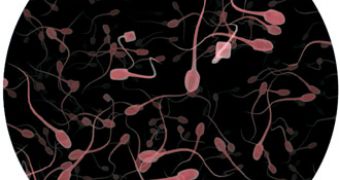Increased sexuality activity has been long linked to higher testosterone levels, which would pose a higher risk of prostatic cancer. Of course, intense sexual activity also exposes the individual to sexually transmitted diseases, also a big risk factor for prostate cancer. But a long-term research at US National Cancer Institute came with a big surprise.
The Follow-up Study enrolled 29,342 males between 40 and 75 and were asked about possible risk factors for cancer and other chronic conditions. For 8 years the subjects were questioned about the frequency of ejaculation, no matter if by sexual intercourse, nocturnal emission and masturbation.
The participants reported the monthly average number of ejaculations when they were 20 to 29, 40 to 49 yeras old, and during the previous year, in a range of frequencies of 1-3, 4-7, 8-12, 13-20, or more than 21 ejaculations per month. Subjects were also asked to report if they had been diagnosed with prostate cancer in the previous two years. 1449 cases of prostate cancer were found.
Of course, the average number of ejaculations per month decreased with the age, from 15.1 at the age of 20-29, to 5.0 for males over 60. 58% of the subjects reported 3 or more ejaculations per week at 20-29, 32% at 40-49 of an age, 22% at 50-59, and 5% in older than 60.
Those with a history of high ejaculation frequency over their lifetime were physically fit but also had a richer history of a sexually transmitted disease, prostatitis and vasectomy. These men were also more likely to be not engaged in a long-term relationship (divorced or separated), consume more total calories, fish, alcohol and food supplements.
Researchers made corrections to their study in connection to the age, race, family history of prostate cancer, vasectomy, body mass at age 21, height, smoking years, type 2 diabetes, physical activity and calorie, fructose, vitamin E, zinc, meat, fish and alcohol intake.
A mean ejaculation frequency of 21 or more times monthly at 40-49, or over 13 per month during a lifetime was connected to a low risk of prostate cancer. This link was not connected to age, family history, sexual transmitted disease, smoking, or diet.
The researchers suspect that frequent ejaculations may damp into the prostatic fluid carcinogenic chemicals, like xenobiotics and others. Frequent ejaculation could also decrease the development of intraluminal prostatic crystalloids, linked by many researchers to prostate tumors.

 14 DAY TRIAL //
14 DAY TRIAL //